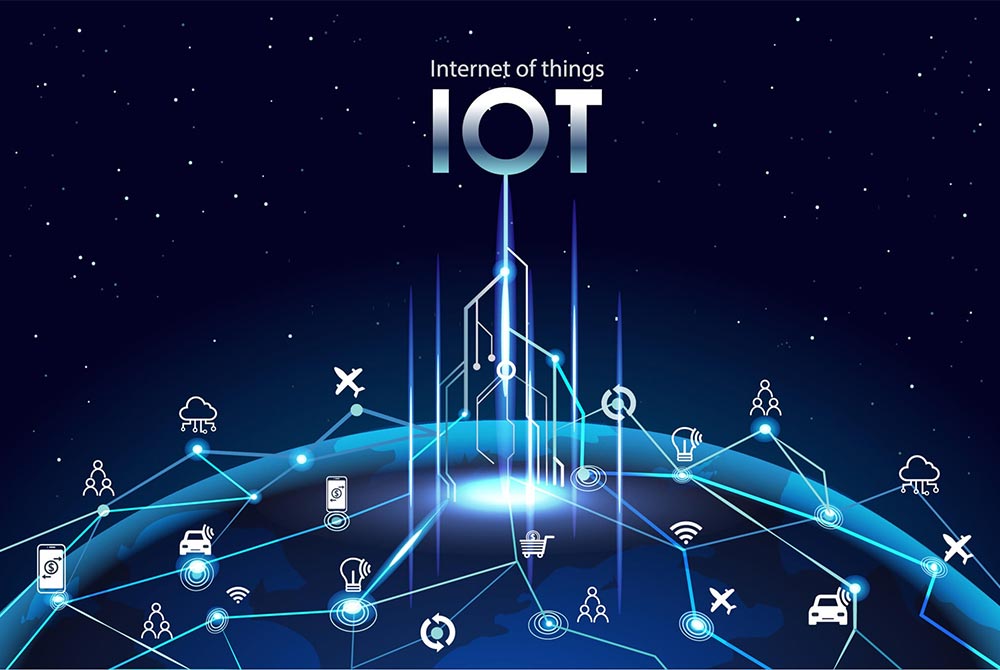The logistics industry is experiencing a significant transformation with the advent of the IoT revolution. This cutting-edge technology is paving the way for smart logistics, which promises to enhance efficiency, improve transparency, and reduce costs. As businesses continue to adopt IoT, the future of logistics is set to become more interconnected and intelligent. Here’s how the IoT revolution is shaping the future of smart logistics.
Real-Time Tracking and Monitoring
One of the most significant benefits of IoT in logistics is the ability to track and monitor shipments in real time.
GPS and Sensor Technology: IoT devices equipped with GPS and sensors can provide real-time data on the location and condition of goods. This allows companies to monitor temperature, humidity, and other environmental factors critical for sensitive shipments such as pharmaceuticals and perishable foods.
Enhanced Visibility: Real-time tracking ensures that all stakeholders, including shippers, carriers, and customers, have access to up-to-date information about the status of shipments. This transparency helps in managing expectations and improving customer satisfaction.
Predictive Maintenance
IoT technology enables predictive maintenance, which can significantly reduce downtime and maintenance costs.
Data Collection: IoT sensors collect data on vehicle performance, including engine temperature, fuel consumption, and tire pressure. This data is analyzed to predict when maintenance is needed, preventing breakdowns and extending the lifespan of vehicles.
Reduced Downtime: By addressing maintenance issues before they become critical, companies can minimize vehicle downtime and ensure that shipments are delivered on time.
Optimizing Route Planning
IoT plays a crucial role in optimizing route planning, which can lead to significant cost savings and efficiency improvements.
Traffic and Weather Data: IoT devices can collect and analyze data on traffic patterns and weather conditions in real time. This information is used to plan the most efficient routes, avoiding delays and reducing fuel consumption.
Dynamic Routing: With IoT, logistics companies can implement dynamic routing, adjusting routes in real time based on current conditions. This adaptability ensures that deliveries are made as quickly and efficiently as possible.
Warehouse Automation
IoT is transforming warehouse operations by enabling automation and improving inventory management.
Smart Warehouses: IoT sensors and devices can automate various warehouse processes, such as sorting, picking, and packing. This automation reduces labor costs and increases accuracy and efficiency.
Inventory Management: IoT devices provide real-time data on inventory levels, allowing companies to optimize stock levels and reduce carrying costs. Smart shelves and RFID tags can track inventory movement and prevent stockouts or overstocking.
Enhancing Security
Security is a critical concern in logistics, and IoT technology offers robust solutions to enhance security measures.
Real-Time Alerts: IoT devices can send real-time alerts if a shipment is tampered with or deviates from its planned route. This immediate notification allows companies to take swift action to address security breaches.
Geofencing: IoT technology can create virtual boundaries or geofences. If a shipment crosses these boundaries, an alert is triggered, enabling companies to monitor and control the movement of goods more effectively.
Sustainability and Green Logistics
IoT contributes to sustainability efforts in logistics by optimizing operations and reducing environmental impact.
Fuel Efficiency: IoT devices help monitor and improve fuel efficiency by providing data on driving behavior, vehicle condition, and optimal routes. This reduces fuel consumption and lowers carbon emissions.
Energy Management: In warehouses, IoT can optimize energy use by monitoring and controlling lighting, heating, and cooling systems. This reduces energy consumption and operational costs.
Future Trends and Innovations
The future of smart logistics with IoT looks promising, with several emerging trends and innovations on the horizon.
5G Connectivity: The rollout of 5G technology will enhance IoT capabilities, providing faster and more reliable connectivity for real-time data transmission. This will further improve tracking, monitoring, and automation in logistics.
AI Integration: Integrating IoT with artificial intelligence (AI) will enable more advanced data analysis and decision-making. AI can analyze data collected by IoT devices to optimize logistics operations and predict trends.
Blockchain Collaboration: Combining IoT with blockchain technology can enhance transparency and security in the supply chain. Blockchain can provide an immutable record of transactions, ensuring data integrity and traceability.
The IoT revolution is transforming the logistics industry, paving the way for a future of smart logistics. By enhancing real-time tracking, predictive maintenance, route planning, warehouse automation, security, and sustainability, IoT is changing how logistics operations are managed. As businesses continue to adopt and innovate with IoT, the logistics sector will become more efficient, transparent, and sustainable.
Embracing IoT technology is essential for logistics companies to stay competitive and meet the evolving demands of the global market. The ongoing advancements in IoT will continue to drive the evolution of smart logistics, making the industry more interconnected and intelligent.

 English
English Tiếng Việt
Tiếng Việt العربية
العربية हिन्दी
हिन्दी Español
Español